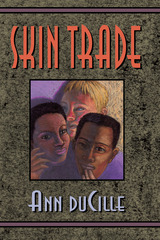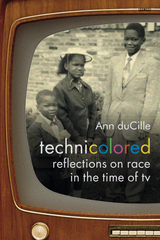
Against the backdrop of such scholarship, contributors look back to scholarly, legal, and literary treatments of the marriage question and address current concerns, from Beyoncé’s music and marriage to the issues of interracial coupling, marriage equality, and the much-discussed decline in African American marriage rates.
Contributors: Ann duCille, Oneka LaBennett, Mignon Moore, Kevin Quashie, Renee Romano, Hortense Spillers, Kendall Thomas, Rebecca Wanzo, Patricia Williams

How does the notion of colorblind equality fit with the social and economic realities of black Americans? Challenging the increasingly popular argument that blacks should settle down, stop whining, and get jobs, Skin Trade insists that racism remains America's premier national story and its grossest national product. From Aunt Jemima Pancakes to ethnic Barbie dolls, corporate America peddles racial and gender stereotypes, packaging and selling them to us as breakfast food or toys for our kids.
Moving from the realm of child's play through the academy and the justice system, Ann duCille draws on icons of popular culture to demonstrate that it isn't just race and gender that matter in America but race and gender as reducible to skin color, body structure, and other visible signs of difference. She reveals that Mattel, Inc., uses stereotypes of gender, race, and cultural difference to mark--and market--its Barbie dolls as female, white, black, Asian, and Hispanic. The popularity of these dolls suggests the degree to which we have internalized dominant definitions of self and other.
In a similar move, Skin Trade interrogates the popular discourse surrounding the trial of O. J. Simpson, arguing that much of the mainstream coverage of the case was a racially coded message equally dependent on stereotypes. Focusing on Newsweek and Time in particular, duCille shows how the former All-American was depicted as un-American. She explores other collusions and collisions among race, gender, and capital as well. Especially concerned with superficial distinctions perpetuated within the academic community, the author argues that the academy indulges in its own skin trade in which both race and gender are hot properties.
By turns biting, humorous, and hopeful, Skin Trade is always riveting, full of strange connections and unexpected insights.

READERS
Browse our collection.
PUBLISHERS
See BiblioVault's publisher services.
STUDENT SERVICES
Files for college accessibility offices.
UChicago Accessibility Resources
home | accessibility | search | about | contact us
BiblioVault ® 2001 - 2024
The University of Chicago Press









